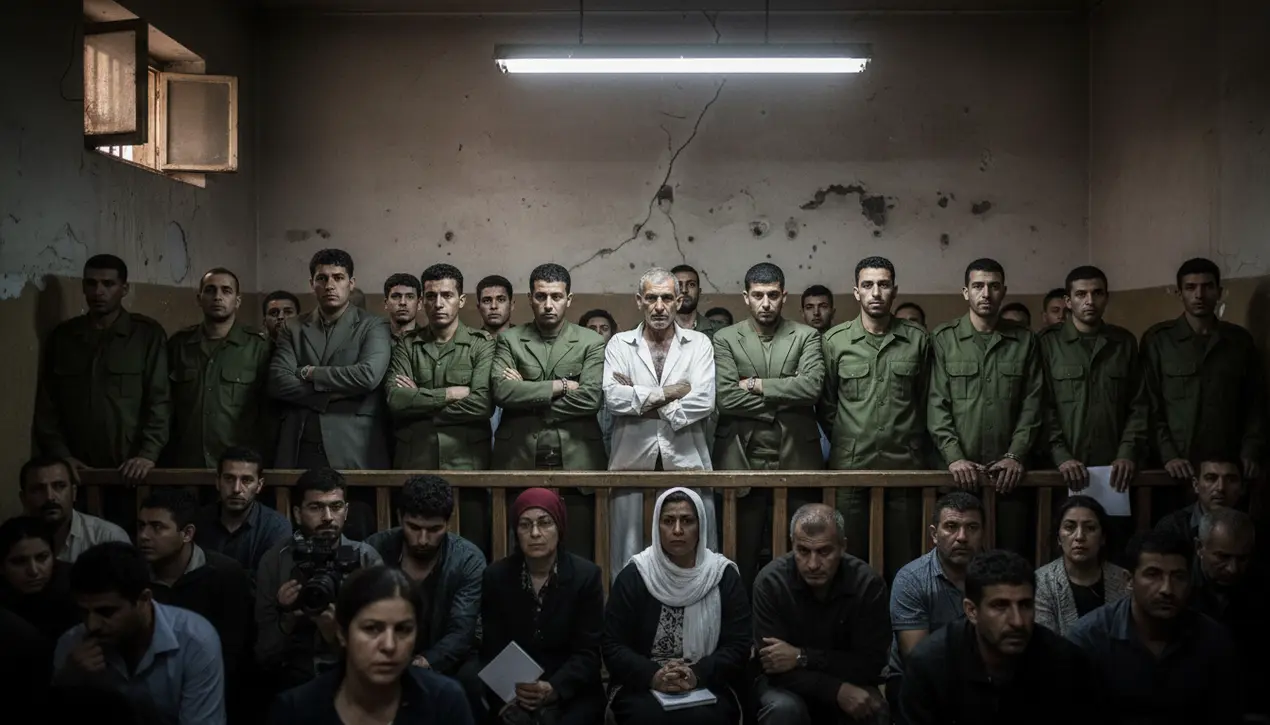
Politicscourts & investigations
Syria Holds First Public Trial Over Coastal Clashes.
RO
Robert Hayes
2 hours ago7 min read1 comments
In a development that marks a significant, if deeply contentious, milestone for the Syrian state, the first public trial concerning the recent coastal clashes has commenced, placing fourteen defendants in the dock under the unforgiving glare of national and international scrutiny. The very composition of the accused speaks volumes about the fractured reality of post-conflict Syria: half are loyalists of the ousted President Bashar al-Assad, a figure whose shadow still looms large over the nation's political and security apparatus, while the other half are members of the new government's own security forces.This is not merely a trial; it is a crucible for the nation's fragile attempt at reconciliation and a stark test of its judicial independence. The coastal region, long considered a relative bastion of stability and a strategic economic hub, has been roiled by these violent confrontations, which analysts suggest are symptomatic of deeper, unresolved tensions between the old guard, clinging to the vestiges of the Assad era, and the nascent institutions of the new administration struggling to establish legitimacy and control.Historically, public trials of this nature in authoritarian or transitioning states have served dual purposes: to project an image of lawful order and to settle political scores. One cannot help but draw parallels to other post-conflict tribunals, where the line between justice and political theater is often perilously thin.The proceedings will be meticulously watched for signs of due process or, conversely, for indications of a predetermined outcome designed to consolidate power. Expert commentary from regional observers points to a high-risk strategy; a transparent and fair trial could potentially build public trust and demonstrate a genuine break from the past, whereas a perceived sham could ignite further unrest and disillusionment among a war-weary populace.The potential consequences are profound, stretching beyond the courtroom walls. A verdict seen as unjust could embolden hardliners on both sides, destabilizing the precarious ceasefire that holds the nation together and potentially triggering a new wave of internal displacement.Conversely, a successful judicial process might pave the way for addressing other atrocities from the decade-long conflict, setting a precedent for accountability that has been sorely lacking. The international community, particularly nations with vested interests in Syria's future, will be analyzing every development, recalibrating their diplomatic and aid strategies based on the trial's outcome. Ultimately, this trial is more than a legal case; it is a microcosm of Syria's ongoing struggle to define itself, a nation grappling with its traumatic history while attempting to navigate an impossibly complex path toward a stable, and perhaps even democratic, future.
#Syria
#trial
#conflict
#government forces
#Assad loyalists
#deadly clashes
#coastal region
#minority
#featured
Stay Informed. Act Smarter.
Get weekly highlights, major headlines, and expert insights — then put your knowledge to work in our live prediction markets.
Comments
Loading comments...
© 2025 Outpoll Service LTD. All rights reserved.